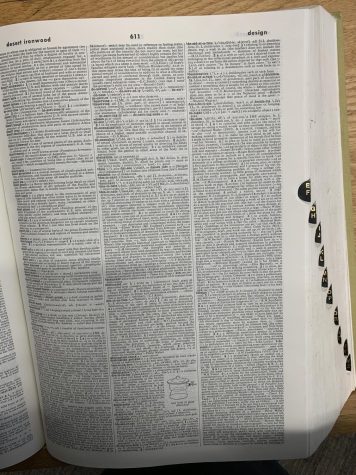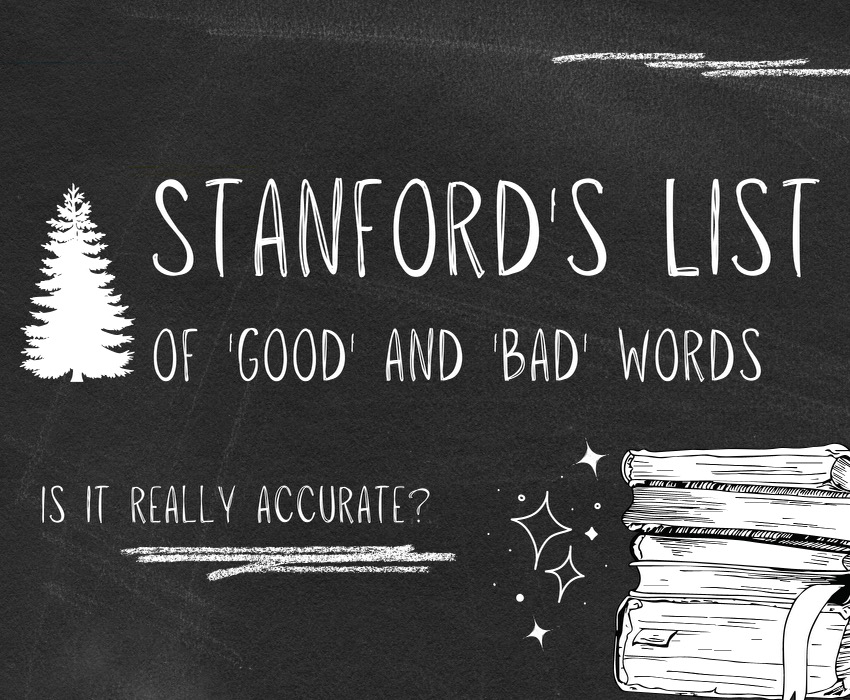Stanford’s new list of “good” and “bad” words—is it really accurate?
Stanford University, located in Palo Alto, CA was said to be “intended as a guide, not a mandate,” after many viewers spoke out about their distaste.
February 9, 2023
Stanford University, one of the top private universities in the world, recently released a list contributing to its “Eliminate Harmful Language Initiative.”
The list includes over 150 words and phrases deemed “ableist,” “ageism,” “colonialism,” “culturally appropriative,” “gender-based,” “imprecise language,” “institutionalized racism,” “person-first,” and “violent.”
However, this list has been deemed controversial by most internet users, as well as students who were willing to share their opinion on the matter. Some words include survivor, American, addicted, crazy, OCD, and brave, among others.
“I don’t think mental illnesses like drug addiction and OCD are a bad thing,” said Cannon Difraia (‘23). “If anything, characterization can help people find the right treatment to get better.”
Stanford has reportedly “backed off from its list,” and the website of the harmful language initiative was taken down two weeks ago.
“The move is the latest in an unfolding saga that’s thrust Stanford into the spotlight on campus free speech controversies,” said Michael T. Nietzel of Forbes.
“I really think that free speech is important, and the list just affirms the opposite,” said Issac Chan (‘23). “I mean, I want to be able to say I’m brave if I climb a mountain or American if someone asks my nationality. It just doesn’t make sense.”
Stanford’s initial goal was to eliminate phrases that are not “helpful” and “exclusionary.” However, the reality of living in such a diverse country is that sometimes these words are simply stating the truth. It is a sad reality that some people are drug addicts, and it should go without saying that that is not all they are considered as people.

Furthermore, this list takes on a recurring pattern of eliminating gendered words. “He” and “she” are deemed unusable to prevent assuming one’s gender. Even the common slang “you guys” has been labeled as “male-assuming” and “male-dominating.”
In the 2020s, it seems many words and phrases that people casually say are now apparently harmful. People constantly have to watch every word out of their mouths, even something as simple as “I am Hispanic” (another banned word on Stanford’s list).
“I’m part Mexican, and I tell people all the time when they ask that I’m Hispanic and Asian,” said Chan. “I’m curious to know who decided Hispanic is offensive and why it is a bad thing for someone to assume that I’m Hispanic. It doesn’t really matter what culture you come from; none are bad.”
The list itself provides descriptions as to why these words should not be used, many of which contradict the purpose itself. This raises the question of whether it is OK to even crack a joke in 2023.
The term to describe middle-aged women who are often rude to service workers, coined Karen, even appears on this list.
Straight from the Stanford List, “[t]his term is used to ridicule or demean a certain group of people on based on their behaviors.”
Is it wrong to go as far as to say that Stanford’s description is true but that this may not be a bad thing? Popularized by TikTok, “Karen” videos used to show women who yelled at workers, often those who make minimum wage and are polite in response to their disrespect.
The backlash from those in disagreement with the list struggled with the fact that the writers of this list seemed to neglect the context in which people use these everyday words. For example, when asked about nationality, American citizens should be able to tell the truth without feeling ashamed of the country they were born in.
“The feedback that this work was broadly viewed as counter to inclusivity means we missed the extended mark. It is for this reason that we have taken down the EHLI site,” said Steve Gallagher, Stanford’s chief information officer.
However, the question How far is too far? is still posed in light of this list.






